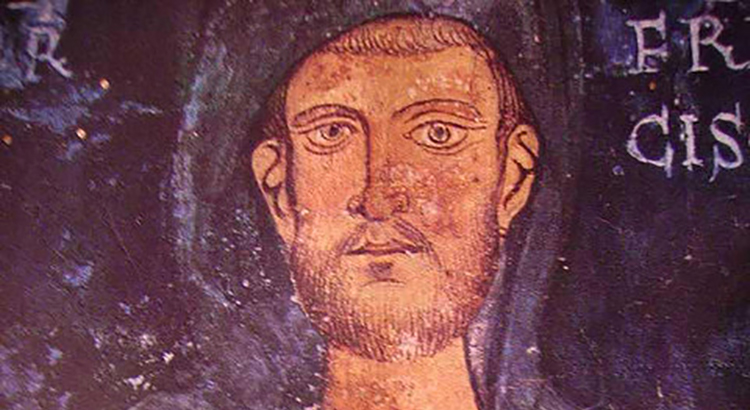Prayer for peace
The prayer for peace is held in the Basilica of Santa Maria in Trastevere.
Reading of the Word of God
Alleluia, alleluia, alleluia
This is the Gospel of the poor,
liberation for the imprisoned,
sight for the blind,
freedom for the oppressed.
Alleluia, alleluia, alleluia
Acts 14,5-18
but eventually with the connivance of the authorities a move was made by gentiles as well as Jews to make attacks on them and to stone them. When they came to hear of this, they went off for safety to Lycaonia where, in the towns of Lystra and Derbe and in the surrounding country, they preached the good news. There was a man sitting there who had never walked in his life, because his feet were crippled from birth; he was listening to Paul preaching, and Paul looked at him intently and saw that he had the faith to be cured. Paul said in a loud voice, 'Get to your feet-stand up,' and the cripple jumped up and began to walk. When the crowds saw what Paul had done they shouted in the language of Lycaonia, 'The gods have come down to us in human form.' They addressed Barnabas as Zeus, and since Paul was the principal speaker they called him Hermes. The priests of Zeus-outside-the-Gate, proposing that all the people should offer sacrifice with them, brought garlanded oxen to the gates. When the apostles Barnabas and Paul heard what was happening they tore their clothes, and rushed into the crowd, shouting, 'Friends, what do you think you are doing? We are only human beings, mortal like yourselves. We have come with good news to make you turn from these empty idols to the living God who made sky and earth and the sea and all that these hold. In the past he allowed all the nations to go their own way; but even then he did not leave you without evidence of himself in the good things he does for you: he sends you rain from heaven and seasons of fruitfulness; he fills you with food and your hearts with merriment.' With this speech they just managed to prevent the crowd from offering them sacrifice.
Alleluia, alleluia, alleluia
The Son of Man came to serve,
whoever wants to be great
should become servant of all.
Alleluia, alleluia, alleluia
Among the people listening to Paul in Lystra, the city where he had taken refuge after fleeing from Iconium, there is a man who has been crippled from birth. Following the example of Jesus, Paul looks him in the eyes and reads in the depths of his heart a simple but decisive request: the desire to walk. The apostle immediately stops preaching, or better, makes his preaching true and effective. He turns to the man and says with authority, "Stand upright on your feet!" The strong words spoken to that weakened man enter into the fibers of his being and raise him up on his feet. The crippled man, Luke notes, "sprang up and began to walk." The Gospel raises people up from their paralysis and gives them back the dignity of standing "on their feet," no longer slaves to the many evil spirits of this world. Peter had worked the same miracle for the crippled man who sat and begged at the "Beautiful" gate of the temple. And it is something that the disciples of every time - even today - can do, when they put their trust in the Word of the Lord. We, the believers of the last hour, often scorn the "power" to heal that the Lord has entrusted to us. We cannot forget what he said to his disciples in the upper room before his death, "Very truly, I tell you, the one who believes in me will also do the works that I do and, in fact, will do greater works than these" (Jn 14:12). Those who were present in Lystra and saw the miracle, which made the man spring to his feet, thought Barnabas and Paul were gods and ran to worship them. The two disciples know well that it is the Lord who is working, through them. And they do not exalt themselves. Miracles are not produced by people, but by the Gospel, that little book that is a source of life for the disciples and for whomever listens to it.
